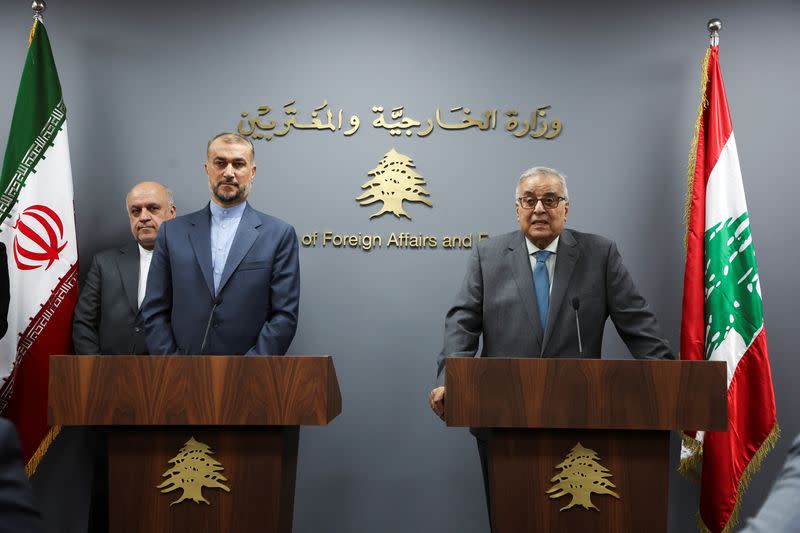Iran's foreign minister meets Hezbollah leader in Lebanon on Israel-Hamas war

Iran's Foreign Minister Hossein Amirabdollahian on Friday discussed Israel's war against Hamas with the head of the powerful Tehran-backed Lebanese armed group Hezbollah, which has launched its own cross-border attacks on Israel.
Amirabdollahian, who arrived in Beirut late on Thursday, said he had met Hezbollah leader as well as Lebanon's caretaker Prime Minister Najib Mikati and caretaker Foreign Minister Abdallah Bouhabib.
Local media outlet Al-Mayadeen said the Iranian minister and Nasrallah had discussed Hamas' attack on Israel. Iran also supports Hamas, and has lauded the group's attack on Israel but has denied any involvement.
Hezbollah has exchange fire with Israel across the border this week, and Israel has responded by striking an observation post belonging to the group as well as Lebanese villages, in the most serious escalation since the 2006 war between Hezbollah and Israel.
Amirabdollahian told reporters on Friday that Israel was committing "war crimes" in Gaza, adding that Iran had asked Egypt, which borders Gaza, the United Nations and aid groups to allow it to send humanitarian aid to the Palestinians.
On Thursday, Amirabdollahian said Israel's actions against the Palestinians would receive a response from Iran's allies and that Israel would have to bear the consequences.
Israel's military on Friday called on all civilians in Gaza City - more than one million people - to relocate south within 24 hours as it amassed tanks in preparation for an expected ground invasion.
Amirabdollahian is due in Syria later on Friday, a day after Israeli air strikes put the airports of Damascus and Aleppo out of service.
- Questions and Answers
- Opinion
- Story/Motivational/Inspiring
- Technology
- Art
- Causes
- Crafts
- Dance
- Drinks
- Film/Movie
- Fitness
- Food
- Παιχνίδια
- Gardening
- Health
- Κεντρική Σελίδα
- Literature
- Music
- Networking
- άλλο
- Party
- Religion
- Shopping
- Sports
- Theater
- Wellness
- News
- Culture
- War machines and policy


